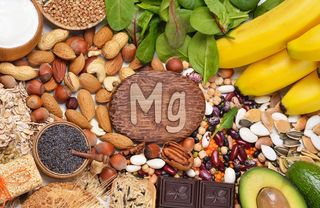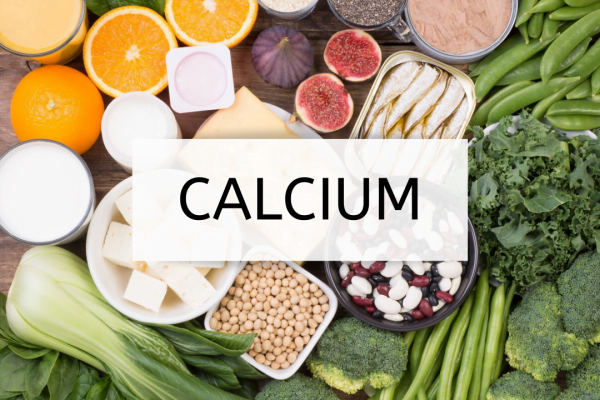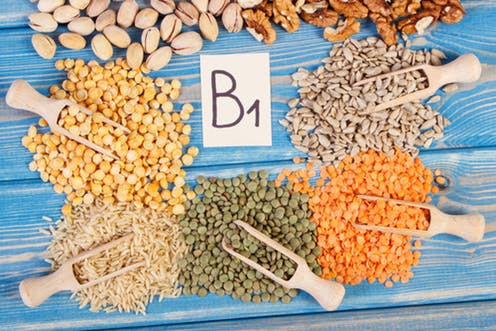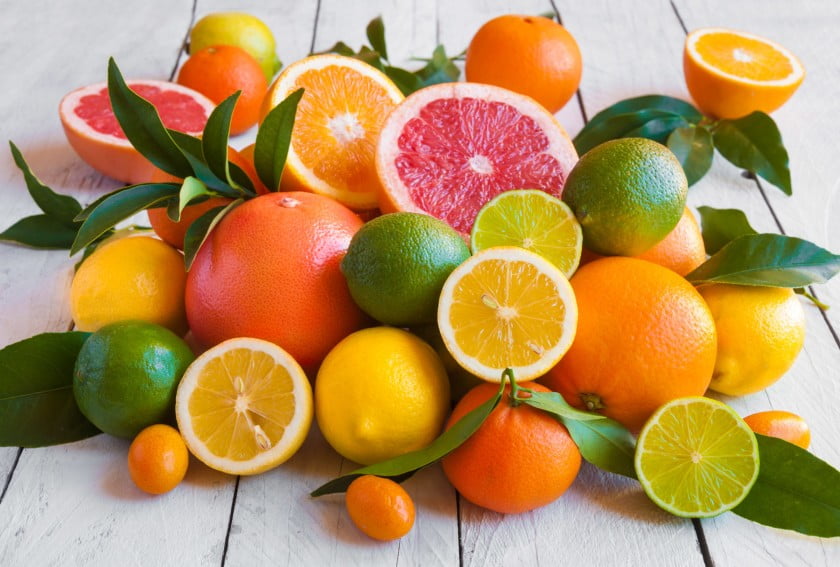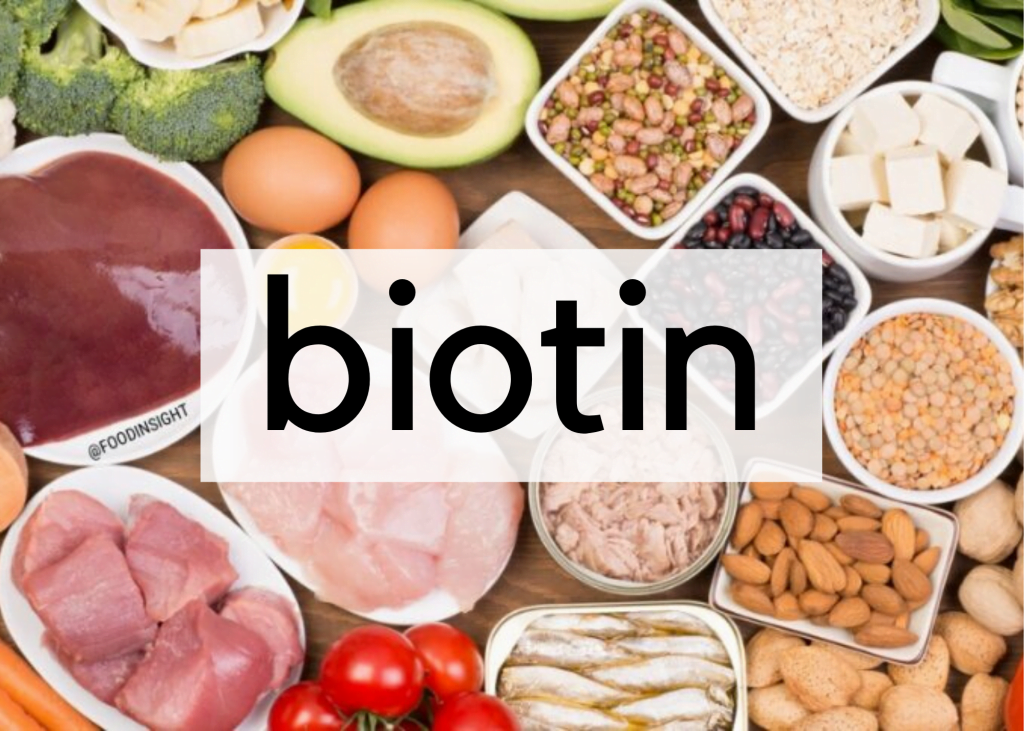
You’ve probably heard about this vitamin a billion times. It’s the famous hair, skin & nails vitamins that so many women (and some men) go crazy for. I mean there’s biotin gummies that promise silky, strong hair, glowing skin and long nails. It’s often called vitamin H, for ‘haar und haut,’ which literally means hair and skin in German!
But, did you know that biotin is good for so much more? It’s really pretty crucial for everyday health.
Biotin, also known as vitamin B7, is involved in energy production. It helps convert carbs, proteins and fats into usable energy. It helps with the formation of DNA and RNA, helps lower blood sugar in diabetic patients, and also helps normalize fat metabolism.
Because of its role in fat metabolism, biotin is sometimes used as an additional treatment for those in weight loss programs. Always talk to your primary care practitioner before starting any new supplements.
For Your Hair
Because biotin converts our macronutrients (carbs, proteins and fats) into energy, it’s amazing at strengthening our hair. Your hair is made of a protein called keratin. It’s what gives your hair strength.
Biotin helps your body break down proteins into its building blocks – amino acids. Biotin helps disassemble the proteins and turns them into another structure that your body uses to make hair!
For Your Skin
Just like biotin helps break down proteins, it also helps convert fats into fatty acids. These fatty acids are smaller fat molecules that the body can use.
Specifically, your body uses these fatty acids to moisturize and hydrate the skin. This also promotes new skin cell regeneration and proper oil gland function.
For Your Nails
Biotin also works with proteins to help build strong nails, just like it does for your hair! In fact, a Swiss study looked at nail plate thickness over the course of 6 months. They found that those who had taken a biotin supplement daily saw a 25% increase in nail plate thickness!
If you have brittle nails, consider giving this a try.
Biotin Deficiency
The good news is, unless you’re eating a ton of raw eggs, it’s unlikely that you’re biotin deficient. Raw eggs contain a protein called avidin which binds to biotin making it difficult for your body to absorb. Cooking eggs destroys avidin, which is why cooked eggs pose no danger.
Another reason for biotin deficiency is antibiotic drugs, especially sulfa drugs.
Unless one of those situations above applies, you’re likely not deficient. Biotin deficiency is actually pretty uncommon.
If, however, you are biotin deficient, some of the symptoms you may notice include:
- Dry, flaky skin
- Loss of energy
- Sensitivity to touch
- inflamed eyes,
- Hair loss
- Muscle weakness
- Muscle cramps
- Lack of coordination
- Loss of apetite
- Nausea and/or vomiting
- Depression
- Impaired fat metabolism
It’s important to note though that a lot of these symptoms could be related to a number of conditions. If you think you may be deficient in something, a blood test may be able to shed some light on your nutrient stores.
Sources of Biotin
Biotin is one of the most stable B vitamins, which is great because most B vitamins are extremely susceptible to damage through cooking or processing foods. And what’s also great is that it’s found in a variety of foods.
I’ve included a table below, from the National Institute of Health, with some common foods containing biotin.
| Food |
Micrograms (mcg) per serving |
| Beef liver, cooked, 3 ounces | 30.8 |
| Egg, whole, cooked | 10.0 |
| Salmon, pink, canned in water, 3 ounces | 5.0 |
| Pork chop, cooked, 3 ounces | 3.8 |
| Hamburger patty, cooked, 3 ounces | 3.8 |
| Sunflower seeds, roasted, ¼ cup | 2.6 |
| Sweet potato, cooked, ½ cup | 2.4 |
| Almonds, roasted, ¼ cup | 1.5 |
| Tuna, canned in water, 3 ounces | 0.6 |
| Spinach, boiled, ½ cup | 0.5 |
| Broccoli, fresh, ½ cup | 0.4 |
| Cheddar cheese, mild, 1 ounce | 0.4 |
| Milk, 2%, 1 cup | 0.3 |
| Plain yogurt, 1 cup | 0.2 |
| Oatmeal, 1 cup | 0.2 |
| Banana, ½ cup | 0.2 |
| Whole wheat bread, 1 slice | 0.0 |
| Apple, ½ cup | 0.0 |
The recommended daily intake of biotin has changed quite a bit and is actually still under review today. The current recommended intake is 300mcg/day but is being changed to 30mcg. Quite a drastic change, in my opinion!
It’s also important to note that the recommended daily intake differs depending on age, gender, and whether you are pregnant or nursing.
Overall, while you may not be deficient in this vitamin, I think it’s important to be aware of what it’s good for and what foods contain biotin!
Don’t forget to share this post on social media and sign up for my newsletter for notifications when a new blog or recipe is posted.

